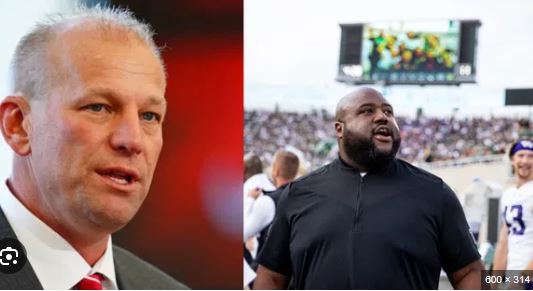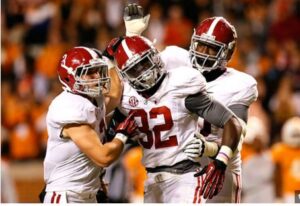
In June 2025, veteran linebacker C.J. Mosley officially brought his distinguished NFL playing career to an end. After spending 11 years in professional football, Mosley leaves behind a remarkable legacy as one of the league’s premier defensive players. Over his tenure, he earned five Pro Bowl selections and was named to the Second-Team All-Pro list four times, signaling his consistent dominance and respect among peers, coaches, and media alike.
Mosley’s impact on the field was immediate and long-lasting. A first-round pick of the Baltimore Ravens in the 2014 NFL Draft, he quickly became a defensive cornerstone. He helped guide a new generation of Baltimore defenders, carrying on the torch from greats like Ray Lewis and Ed Reed. Later, Mosley continued that leadership role with the New York Jets, anchoring their defense through the early 2020s. His influence extended far beyond the stat sheet; he was widely regarded as a cerebral leader—one who studied the game with rigor and set the tone for his locker room.
Now, as Mosley transitions away from the gridiron, he’s preparing to make his mark in a new arena: the business of sports. He’s launching a full-service sports agency called Legacy Trust Sports Group—a venture that signals his ambition to stay connected to athletics, but in a way that emphasizes mentorship, business development, and athlete empowerment.
Founding a Legacy Beyond the Field
C.J. Mosley isn’t embarking on this journey alone. He’s formed a strategic team of experienced professionals to co-lead Legacy Trust Sports Group. Among them are Brandon Wassel, a trusted business associate; Joe Gazza, a seasoned agent with experience in athlete representation; and, notably, AK Mogulla, the former scouting director at Auburn University. This blend of expertise—from player scouting and recruitment to legal and contract negotiation—aims to make Legacy Trust a major player in both the NIL (Name, Image, and Likeness) and professional sports ecosystems.
Interestingly, the collaboration between Mosley and Mogulla adds a dynamic twist, especially considering their respective college affiliations. Mosley, of course, is a proud University of Alabama alumnus, having won two national championships with the Crimson Tide. Mogulla, by contrast, brings deep ties to Auburn, Alabama’s historic in-state rival. While this may raise eyebrows among some SEC diehards, their partnership is a reflection of the growing professionalism in collegiate sports representation—where collaboration often transcends former rivalries.

New Era of Athlete Representation: NIL, Revenue Sharing, and Strategic Partnerships
The timing of Legacy Trust’s launch is no coincidence. On July 1, 2025, the House v. NCAA settlement officially took effect, fundamentally changing the structure of collegiate athletics. Under the settlement terms, universities are now allowed to share revenue with student-athletes, marking one of the most transformative developments in the history of college sports. Combined with the ongoing explosion of NIL deals, the college landscape is evolving into a semi-professional marketplace—one where agencies like Legacy Trust will play an increasingly influential role.
Mosley’s agency is designed to serve athletes at both the college and professional levels, with services likely including contract negotiation, branding support, financial planning, and career development. While the agency is open to working across all sports, the initial launch video highlighted its focus on current and former college football players—many of whom are navigating the complex, fast-changing world of NIL endorsements and now, direct revenue payments from schools.
Could Alabama Benefit from Mosley’s New Role?
A key question emerging from this announcement is, could Alabama football gain an edge by virtue of Mosley’s connections? On the surface, Mosley’s deep relationship with the Crimson Tide might seem to position Alabama favorably in negotiations with players represented by Legacy Trust. In theory, his ties to Tuscaloosa could help the program maintain positive relationships with the agency—and perhaps attract top-tier talent who value that connection.
However, that assumption oversimplifies the mission of Mosley’s business. Legacy Trust is not in the business of funneling talent to specific programs based on alumni ties. Instead, the agency’s top priority is to advocate for its clients’ best interests. That means securing optimal development environments, financial opportunities, and competitive situations—whether those are at Alabama, another SEC school, or even outside the Power Five conferences.
Still, Mosley’s past with Alabama may prove useful in building trust and familiarity between the agency and the Crimson Tide’s current leadership. For instance, Courtney Morgan, Alabama’s general manager, will need to maintain strong professional relationships with major agencies as college football becomes more transactional. If Alabama can position itself as a preferred destination for athletes working with Legacy Trust—without overstepping or relying on favoritism—it could help in recruiting and retaining elite talent.
The Double-Edged Sword: Auburn Connections
Mosley’s partnership with AK Mogulla adds complexity to the situation. Mogulla, as a former high-ranking figure at Auburn, naturally brings ties to one of Alabama’s fiercest rivals. While his presence might raise concerns among fans hoping for an Alabama-favoring agency, it’s important to recognize that modern sports agencies operate with professional detachment from school loyalties.
In fact, Mogulla’s presence may enhance the agency’s reach in the Southeast, allowing Legacy Trust to build networks across multiple recruiting pipelines. The goal is not to favor one school over another but to ensure clients have maximum exposure and opportunity, whether through Auburn, Alabama, Georgia, Florida State, or beyond.
What Does the Future Hold?
As the power of agents and agencies grows in college sports, programs that fail to cultivate strong relationships with key player representatives risk falling behind. Coaches and athletic directors are no longer the only voices shaping recruiting and player development conversations. Agencies like Legacy Trust are now central players, and their influence will only grow as NIL and revenue-sharing models mature.
For Alabama, maintaining a strong line of communication with Legacy Trust could help ensure that the program remains a viable and attractive destination for elite talent. But it won’t be enough to rest on shared history with Mosley. The Crimson Tide will need to prove that they offer the best developmental environment, media exposure, and financial opportunities—just like every other top-tier program.
Leave a Reply